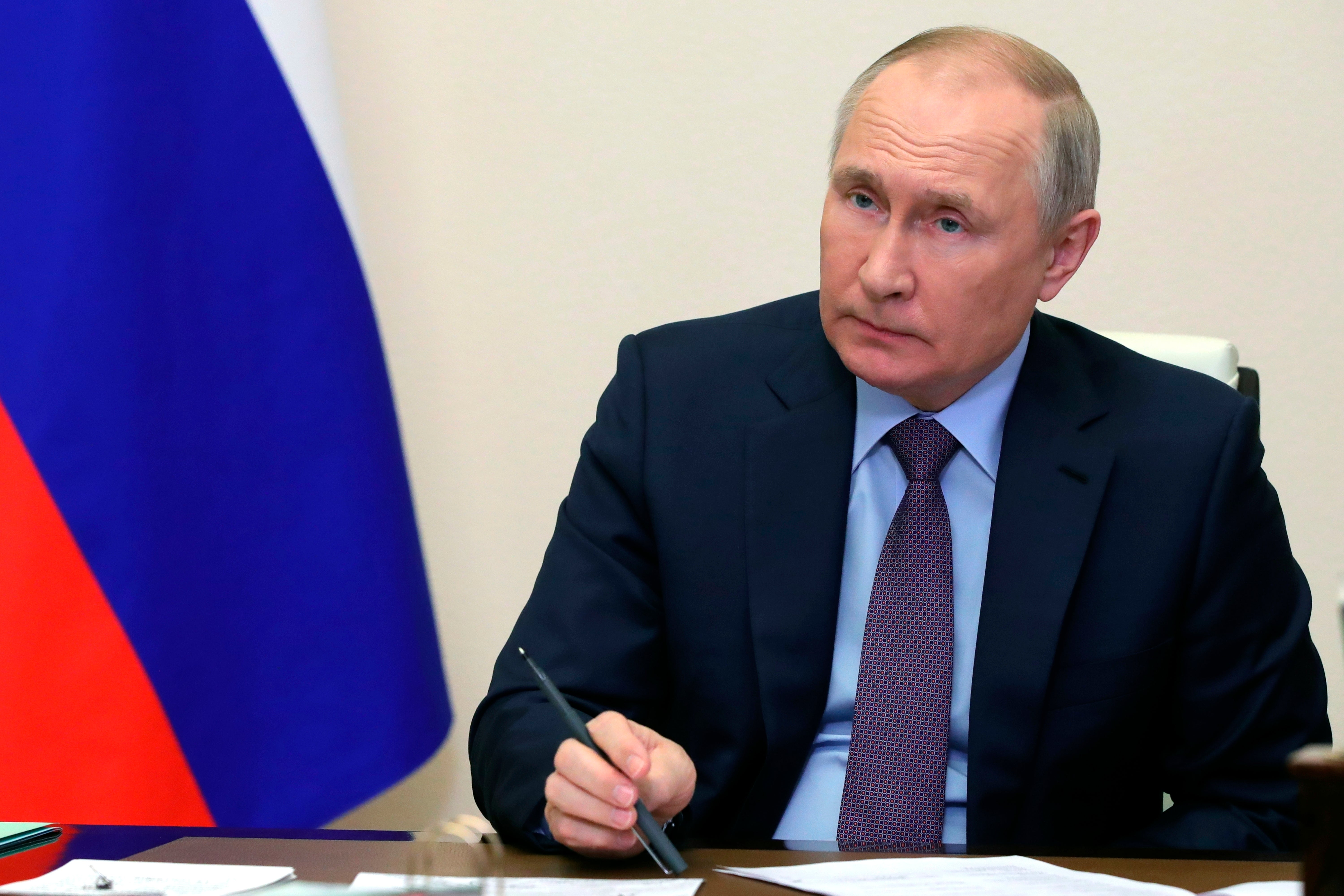At Easter we must reflect on the truth that politics cannot save us – even ‘Christian’ politics
Christianity has long been used as a political weapon in global powerplay, writes Tim Farron MP


After nearly six weeks of brutal bombardment of Ukraine by Vladimir Putin’s forces, it is clear that the world is as full of war, violence and hatred as ever. In his desire to reclaim lost power in eastern Europe, the Russian president has declared that he is “liberating” Ukraine from Nazism and genocide, but many western commentators have missed the point: this war is also about religion.
Kyiv is the birthplace of the Russian Orthodox Church, and Putin’s attempt to occupy Ukraine is part of his desire to reunify the church and build what he calls “spiritual security” into his national security.
Both Putin and Patriarch Kirill, head of the orthodox church, have been explicit about their efforts to defend “traditional Christian values” against what they see as evil progressive western influences. Foreign policy and militarism are their tools in this battle.
Indeed, Christianity has long been used as a political weapon in global powerplay. And many Christian nationalists in the west have leapt to support Putin. They approve of his desire to stand against what they see as the threat to Christian values from secular liberalism and identity politics ideologies.
This is the same spirit that saw active Christian involvement in the assault on Capitol Hill last year, seeking to overthrow the presidential election result which they believed threatened the future of their particular brand of faith in the US.
It was an emotional response to a belief that Christianity – specifically white, evangelical Christianity – is under siege; that Trump was God’s anointed and therefore Biden’s victory was evil.
This is not new. In every age, people have used religion to gain and hold power. And many of those who lead the calls to shore up our Christian heritage are seeking not to heal divisions in society, but to intensify them for their own gain. This outlook is related more to nationalism than to Christianity. It contains very little of the Christian faith started by a middle-Eastern Jew in first-century Judea.
At Easter, we should remind ourselves that the death and resurrection of Jesus tell us a very different story about politics, power and hope. Accounts of the first Easter show us how Jesus turned the whole notion of power upside down. He disappointed the people who expected him to rise up with an army against the Roman occupiers. Instead, he chose humiliation and execution at the hands of the greatest political and military power of the day.
At Easter, Christians celebrate Jesus’s victory on the cross over the spiritual forces of evil, and over death itself. Yet at the time this looked very much like failure. Instead of seeking political power, he used a symbol of weakness, shame and powerlessness to restore justice and mercy to a broken world.
Christ’s way is based on love, grace and forgiveness. This does not mean he didn’t get angry with corruption. On one occasion he turned over the tables of the moneylenders trying to fleece worshippers in the temple courts. Christians must fight against injustice, but this does not mean installing a theocratic government or responding to opposing views with hatred and violence.
Understanding that Christ paid all our debts on the cross means that we can live, radically liberated, from the need to rescue ourselves and “the Christian cause” through political power and military might; whether this is seen in trying to bomb a neighbouring country into submission, or in seeking to overturn a democratic election result through violent uprising.
Instead, Christians depend on God’s grace, and we are called to model that grace through our politics. This is revolutionary. Jesus told a famous parable about a man who was left for dead by bandits but cared for by an enemy. His point was that everyone is our neighbour, and we are to love our neighbour and that this love should cost us because all genuine love does. In response to God’s grace, we are led to reflect that grace in our dealings with everyone else.
To keep up to speed with all the latest opinions and comment sign up to our free weekly Voices Dispatches newsletter by clicking here
It is a huge challenge to seek a path through the division and avoid being hijacked by either side. Jesus could be combative in his language, but he was not vicious; he got angry, but he was also full of compassion. We can be provocative in our arguments, but we should not be filled with hatred for those who disagree with us.
Grace is outrageous. And Christians have spent the last two thousand years modelling it imperfectly or seeking to gain power through a distorted, divisive theology.
At Easter, we reflect on the truth that politics cannot save us – even “Christian” politics. Jesus claims to be the only saviour. He turned all our notions of power on their head, and he holds out the promise of a secure future in which there will be no more war, pain, death or division. Our world and our politics desperately need this hope today.
Tim Farron is MP for Westmorland and Lonsdale and former leader of the Liberal Democrats






Join our commenting forum
Join thought-provoking conversations, follow other Independent readers and see their replies
Comments